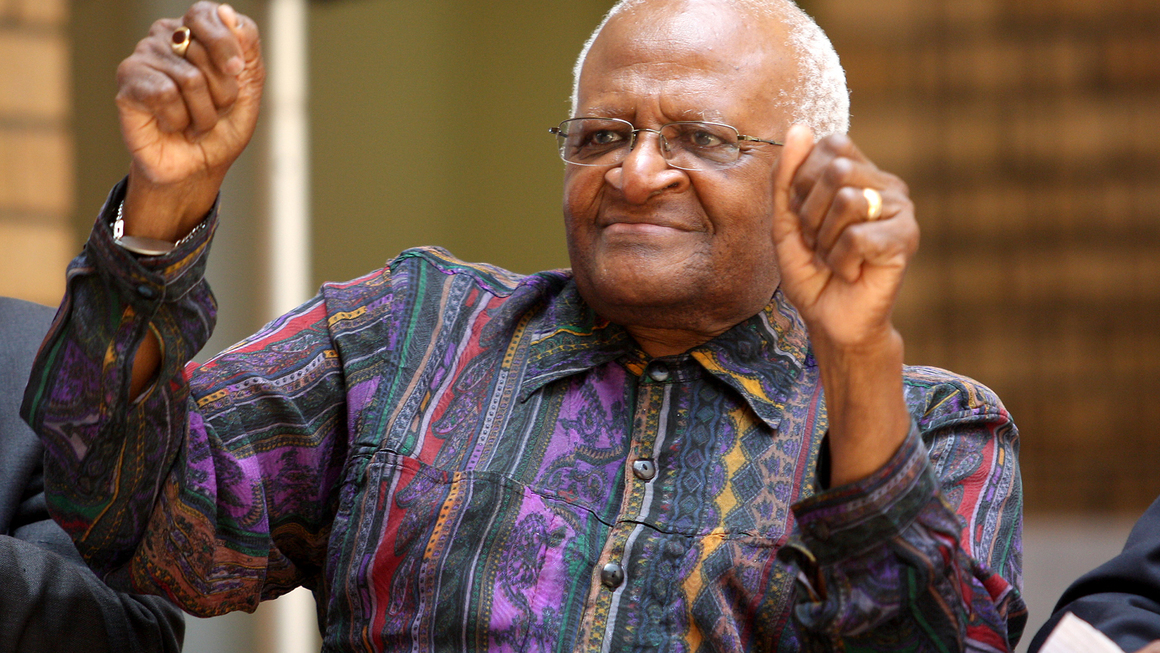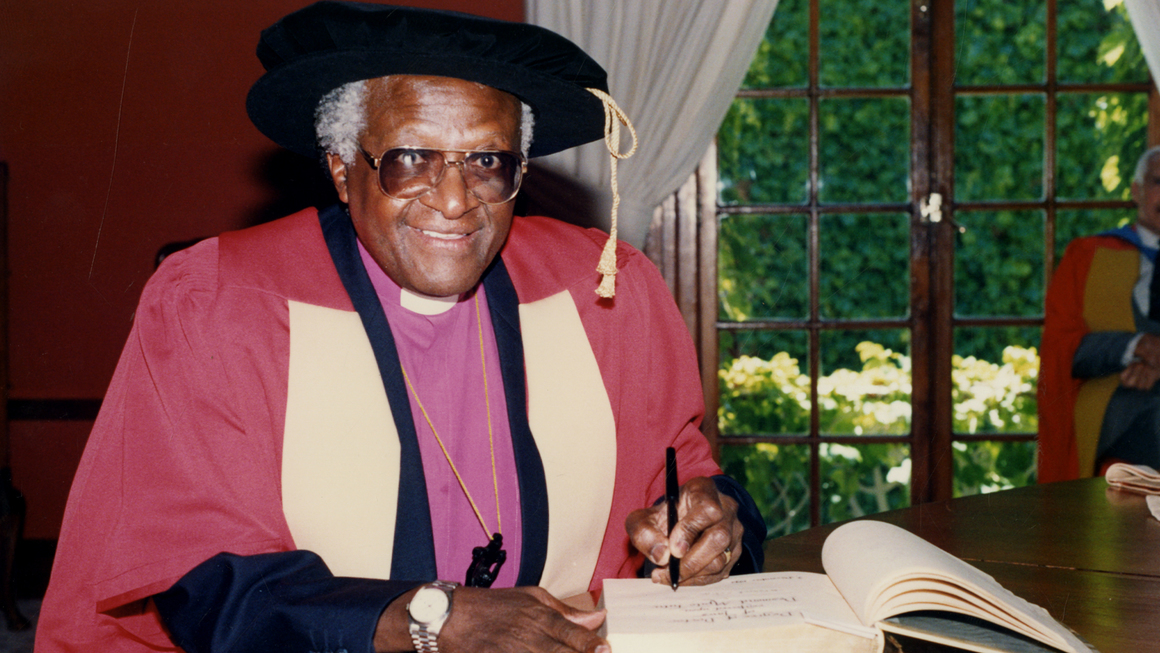Tutu and others talk justice and reconciliation
29 August 2011 | Story by Newsroom
Not surprisingly, the national media gravitated in their reports to the more headline-grabbing of Archbishop Emeritus Desmond Tutu's remarks at A Moral Imperative to Speak, a panel discussion hosted at UCT on 24 August.
Such as when he said that former president Thabo Mbeki had hated the work of the Truth and Reconciliation Commission, notably because it had "criminalised" the freedom struggle. Or when he - Tutu - said he's tempted to back down from his much-publicised proposal of a wealth tax, only because the furore that had broken out in response had "nullified" this opportunity for and gesture of reconciliation.
Which kind of overshadowed the tone of the evening.
Rather, as is his trademark, Tutu once again made an impassioned plea for reconciliation. Which became something of a theme for his fellow panellists as well at this 'public conversation', themed A Moral Imperative to Speak: What does civic responsibility mean in our troubled times? and hosted by the Living Reconciliation Forum, a collaborative project between UCT's Professor Pumla Gobodo-Madikizela and Professor Jaco Barnard Naudé and the Institute for Justice and Reconciliation.
So Amanda Ngwenya, president of UCT's Students' Representative Council (SRC), spoke of the need to find one's own "humanness", and that of others.
Rayne Moses, SRC president at the Tertiary School in Business Administration, asked for a country where the youth can reach their full potential. Jan Greyling, SRC president at Stellenbosch University, bewailed the lack of opportunities for the youth, and the lack of leadership in the country. (This after he charmed the other panellists and the audience with his fluent isiXhosa; itself an act of reconciliation, many noted.)
Concedo Bulana, a community organiser in Khayelitsha, blasted the empty promises that campaigning politicians make in the run-up to elections. Tutu spoke of the South Africa he and others once dreamed of, a country where people care for and respected each other.
Ferial Haffajee, the editor of newspaper City Press, talked of how she'd like to see the back of racial classifications, but understands that issues of redress may make that difficult. Dr Sipho Pityana, chairperson of the Council for the Advancement of the South African Constitution, reflected on the "schizophrenic" South Africa where a short trip through Cape Town will in quick time take you from the "stench" of poverty in a township to the suburbs of the "stinking rich". And Professor Bernard Lategan of Stellenbosch University pointed to the "elephant in the room", namely the continued inequality in the country.
Yes, Tutu did mention the TRC and his proposed wealth tax. But these comments were not meant to stir things up, as his reputation would suggest, he said. Rather, he noted, these were and are opportunities - "gestures matter" - for black and white South Africans to show that they care about each other.
"We have the capacity to become one of the most wonderful countries in the world."
Download podcasts of the symposium.
 This work is licensed under a Creative Commons Attribution-NoDerivatives 4.0 International License.
This work is licensed under a Creative Commons Attribution-NoDerivatives 4.0 International License.
Please view the republishing articles page for more information.
Archbishop Emeritus Desmond Tutu: 1931–2021
On Sunday, 26 December 2021, the University of Cape Town learned of the passing of Archbishop Emeritus Desmond Tutu, 90. We say goodbye to a man who taught us the power of joy to fight injustice and evil.
“Archbishop Emeritus Tutu, as he graciously aged, never lost his vision for a just and free South Africa.”
– Archbishop Emeritus Njongonkulu Ndungane
Stories from the UCT archives

It took UCT seven years to award the second Chancellor's Award for Outstanding Leadership in Africa - a reminder not only of the prestige of the accolade, but also of how few and far between worthy recipients have been.
12 Dec 2011
Caught up in the demands of their studies, students are often slow to volunteer for extra-curricula activities. To counter this, the university's student leadership hosted a week-long drive to foster a sense of social responsibility among their peers.
05 Sep 2011
In his valedictory lecture at UCT's medical school on 13 February, Professor Solomon Benatar of the Department of Medicine in the Faculty of Health Sciences, stated that the health of whole populations - in South Africa and globally - is <i>the</i> major crisis and challenge for humanity in the 21st century.
20 Feb 2008
With workmen in the background reminding guests of the newness of the hosting Wolfsohn Pavilion, the mood at the IIDMM headquarters was festive last Wednesday as Archbishop Emeritus Desmond Tutu and his wife Leah arrived to open an HIV centre there named in Tutu's honour.
09 Feb 2006








































